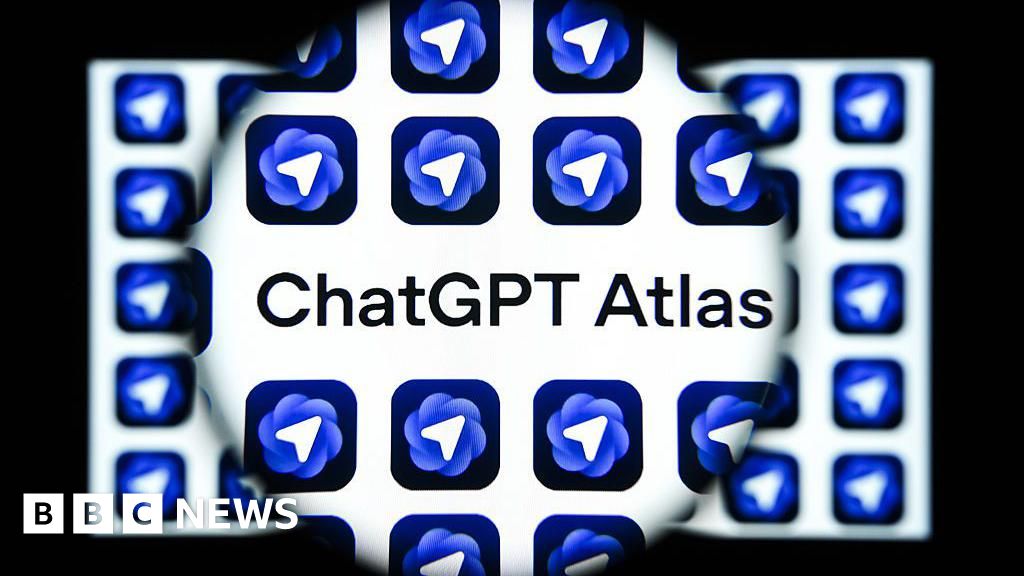Can OpenAI unseat Google Chrome which controls roughly two thirds of the browser market about 65 percent? In a hands on review published 26 October 2025 the BBC tested ChatGPT Atlas OpenAI s AI first browser that embeds ChatGPT for built in summarization research assistance and automated page interactions. The review found that Atlas can boost productivity for many users by helping to automate repetitive tasks and streamline research but that most advanced capabilities are tied to paid tiers.
What an AI first browser tries to solve
Browsers remain the main interface to the web yet users still juggle tabs synthesize information manually and repeat trivial interactions. An AI first browser aims to make the assistant native to browsing so you can summarize pages gather facts and automate workflows without context switching.
- Built in summarization that condenses long articles into key points and action items
- Research assistance that extracts facts cites sources and helps plan next steps
- Automated page interactions that perform repetitive tasks like filling forms or following multi step workflows
Technical terms explained
- Generative AI applications produce text or actions in response to prompts. In a browser this means the assistant can read a page and generate a summary or follow up search.
- Hallucination is when an AI confidently returns incorrect or fabricated information. It is a common limitation of current large language models or LLMs and a key risk for embedding AI in browsing.
Key findings from the BBC hands on review
- Integrated assistant features Atlas embeds ChatGPT so users can ask for summaries research help and action automation without switching apps or tabs which aligns with searches for best AI browsers and AI tools 2025.
- Modest everyday gains For routine browsing the BBC tester saw incremental efficiency improvements rather than transformative speed ups though tasks that involve summarizing content or quick research showed clear time savings.
- Paid tier gating Many advanced features require a paid subscription which limits access and shapes adoption especially for enterprises weighing seat based licensing.
- Privacy and user experience Atlas takes a different approach to data handling than Chrome which may attract supporters of privacy first browsers while raising governance questions for regulated organizations.
- AI reliability The review highlighted hallucinations and uneven accuracy so human oversight and verification remain essential.
Put simply Atlas simplifies some workflows but is not yet a drop in replacement for mainstream browsers like Chrome or Safari which holds about 18 percent of the market while Edge sits near 4 percent.
Implications for businesses
What does Atlas mean for organizations and professionals? The impact centers on productivity business model and data governance.
- Productivity gains will be task dependent Atlas is most useful for summarizing content gathering quick research and automating repetitive page interactions. Non technical employees can see real time savings when they use AI powered productivity tools. For complex work that requires absolute accuracy verification is required because LLM integration can produce errors.
- Business model will shape adoption Because many capabilities are reserved for paid tiers adoption depends on whether companies will pay for seat based or tiered access. Enterprises should compare subscription costs with expected gains and compliance needs.
- Privacy and compliance concerns A browser that routes content through large language models raises data governance questions. Organizations in regulated sectors need clear assurances about how content is logged stored or used to train models.
- Competitive pressure on incumbents Chrome s market dominance is not guaranteed. A successful AI native experience could push incumbents to integrate stronger assistants into their products but Chrome s enterprise management features remain a major advantage.
- Talent and workflow shift Where Atlas reduces routine work roles may shift toward verification interpretation and decision making aligning with broader trends of automation augmenting human expertise.
Practical advice for business leaders
- Pilot Atlas on narrow use cases like market scan summaries or automated data entry to measure productivity versus subscription cost and to test workflow automation.
- Evaluate data privacy controls and ask vendors how content is logged stored or excluded from model training to meet compliance needs.
- Train staff on AI limitations especially hallucinations and require verification for outputs used in decisions.
- Look for ways to integrate Atlas with existing collaboration platforms and workflow tools to streamline processes and boost efficiency.
SEO and search context to watch
Content about Atlas should integrate conversational long tail keywords such as how to automate daily tasks with AI best AI browsers and AI powered productivity. Optimize pages for zero click search results and AI overviews by including clear summary boxes and short answers and by highlighting E E A T credentials for authors who cover AI and security.
Conclusion
ChatGPT Atlas refocuses browsing around an embedded generative assistant offering a cleaner workflow for content summarization research and automation. The BBC review finds Atlas useful especially for non technical users but not yet ready to replace Chrome for many professional environments. Wider adoption depends on pricing model improvements in model reliability and enterprise grade privacy controls. Organizations should experiment selectively set guardrails for accuracy and compliance and monitor how browser incumbents respond as AI continues to reshape productivity tools.
One industry insight Generative tools deliver quick wins for simple repetitive tasks but only gradually reshape higher trust regulation heavy workflows.




